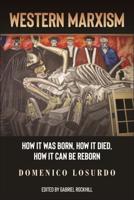Publisher's Synopsis
In ""Liberalism at Its Limits"", Ileana Rodriguez considers several Latin American nations that govern under the name of liberalism yet display a shocking range of nondemocratic features. In her political, cultural, and philosophical analysis, she examines these environments in which liberalism seems to have reached its limits, as the universalizing project gives way to rampant nonstate violence, gross inequality, and neocolonialism. Focusing on Guatemala, Colombia, and Mexico, Rodriguez shows how standard liberal models fail to account for new forms of violence and exploitation, which in fact follow from specific clashes between liberal ideology and local practice. Looking at these tensions within the ostensibly well-ordered state, Rodriguez exposes how the misunderstanding and misuse of liberal principles are behind realities of political turmoil, and questions whether liberalism is in fact an ideology sufficient to empower populations and transition nation-states into democratic roles in the global order. In this way, ""Liberalism at Its Limits"" offers a critical examination of the forced fitting of liberal models to Latin American nations and reasserts cross-cultural communication as crucial to grasping the true link between varying systems of value and politics.









